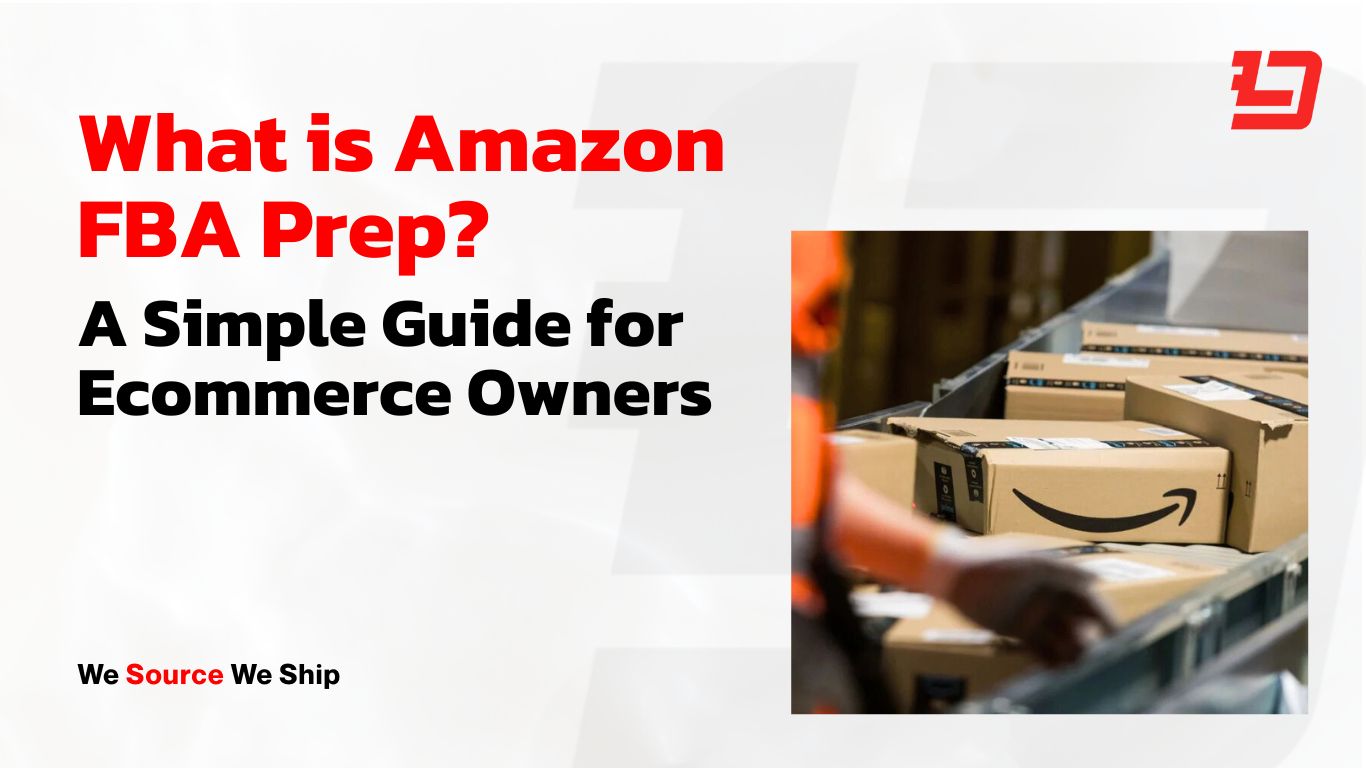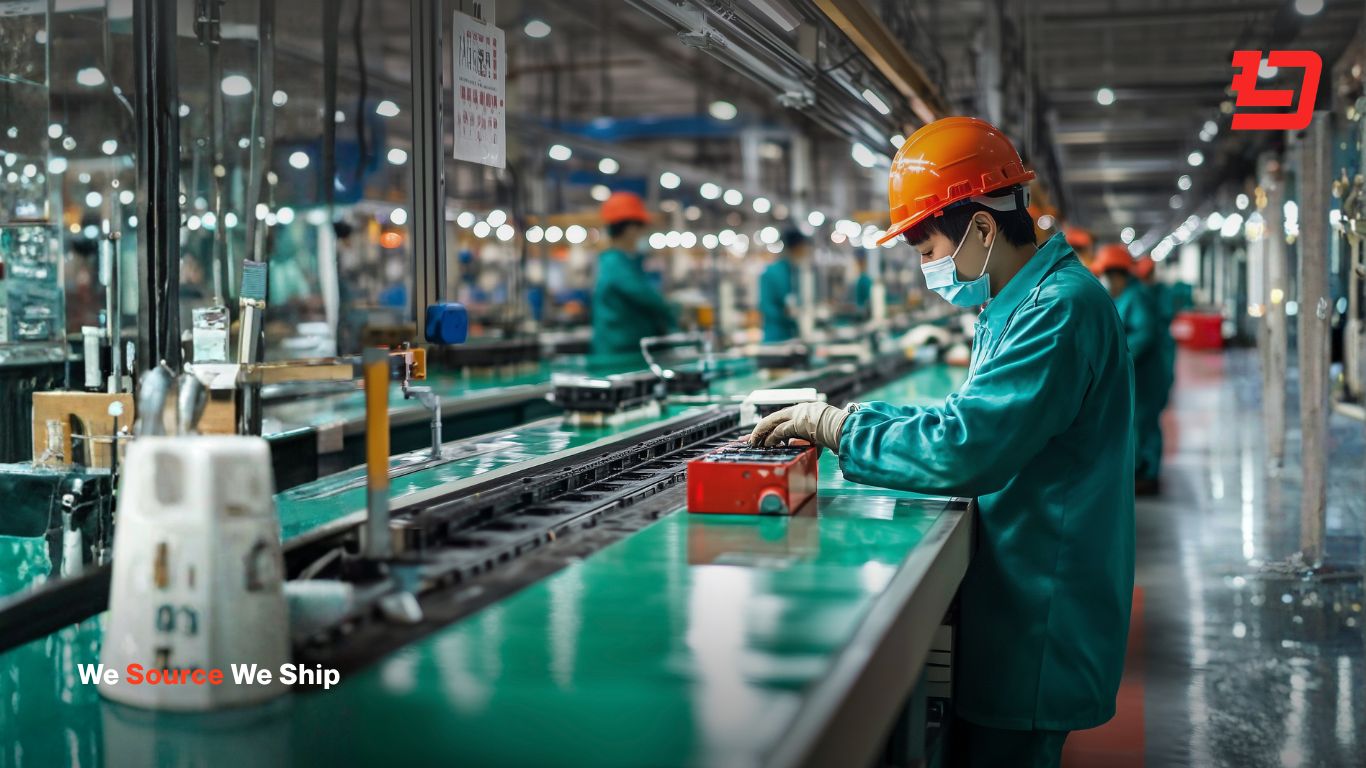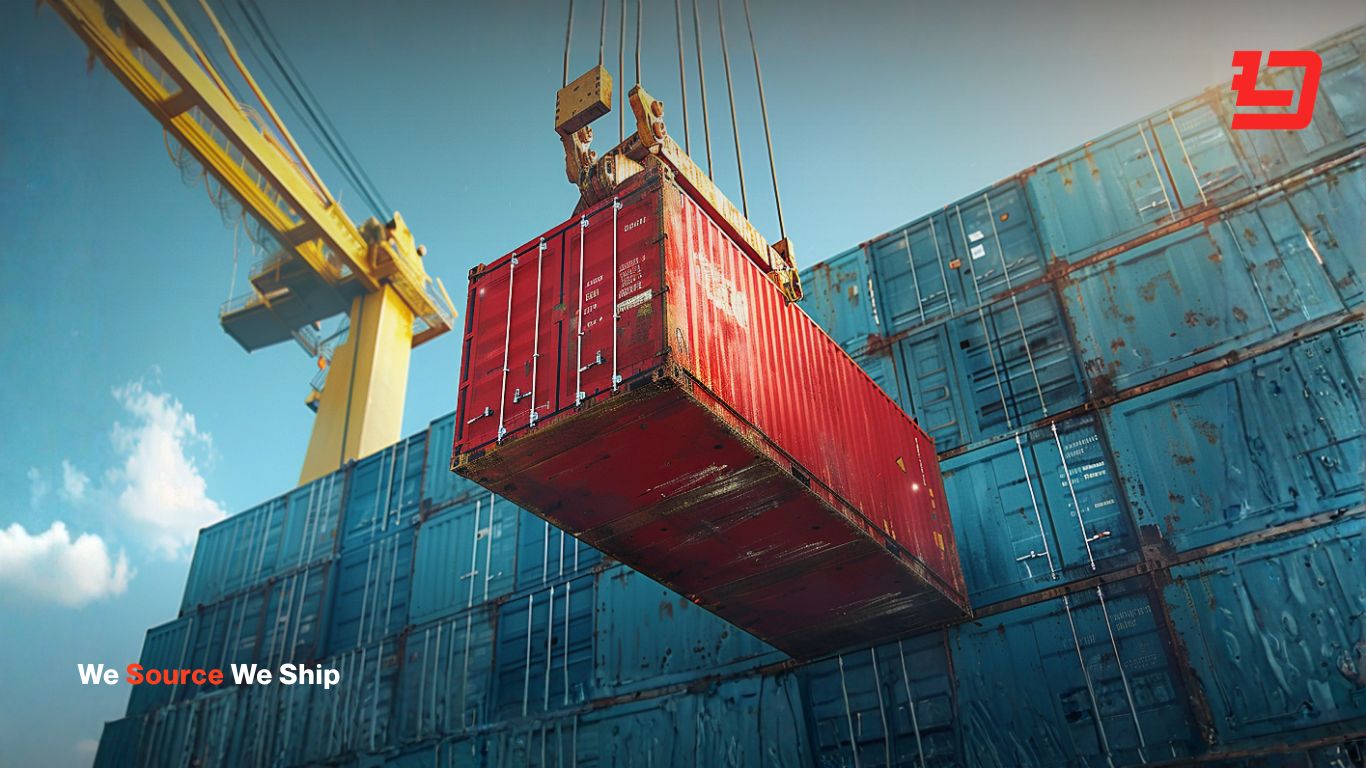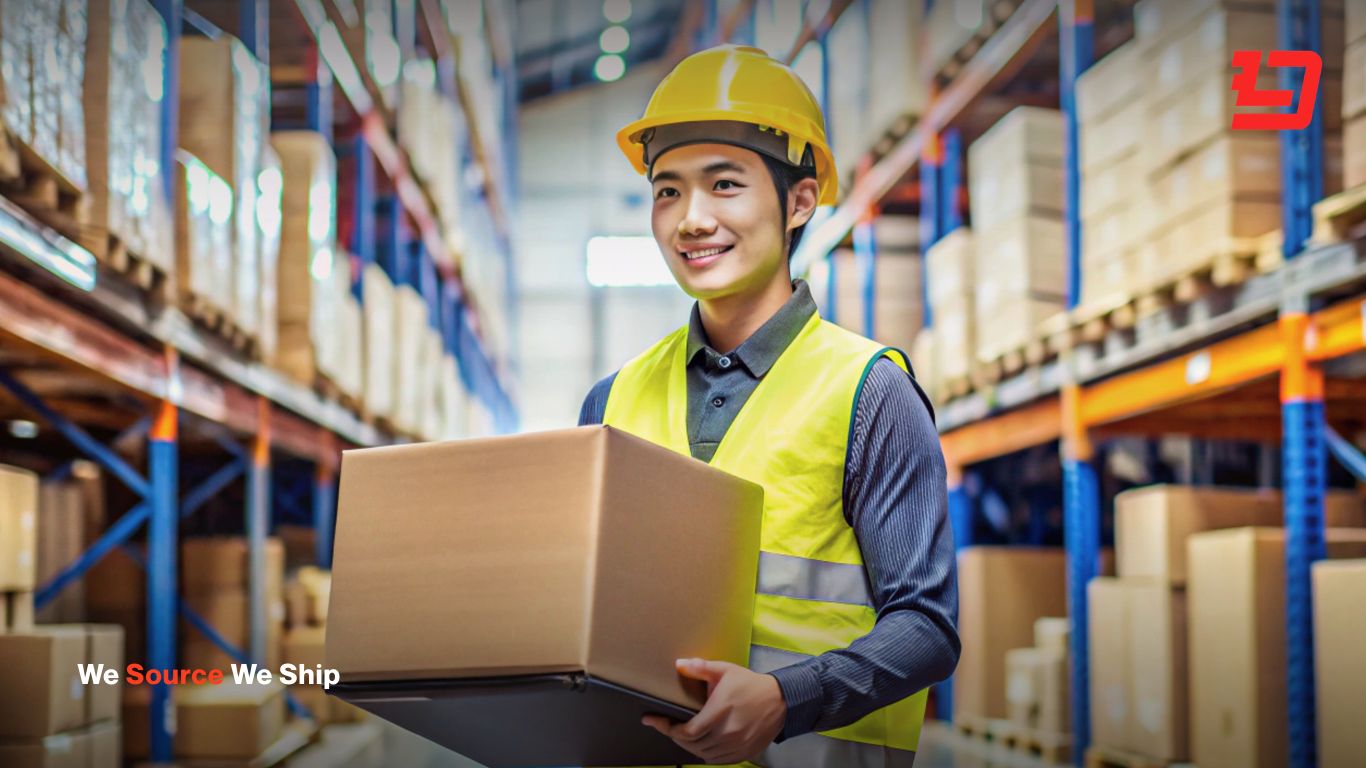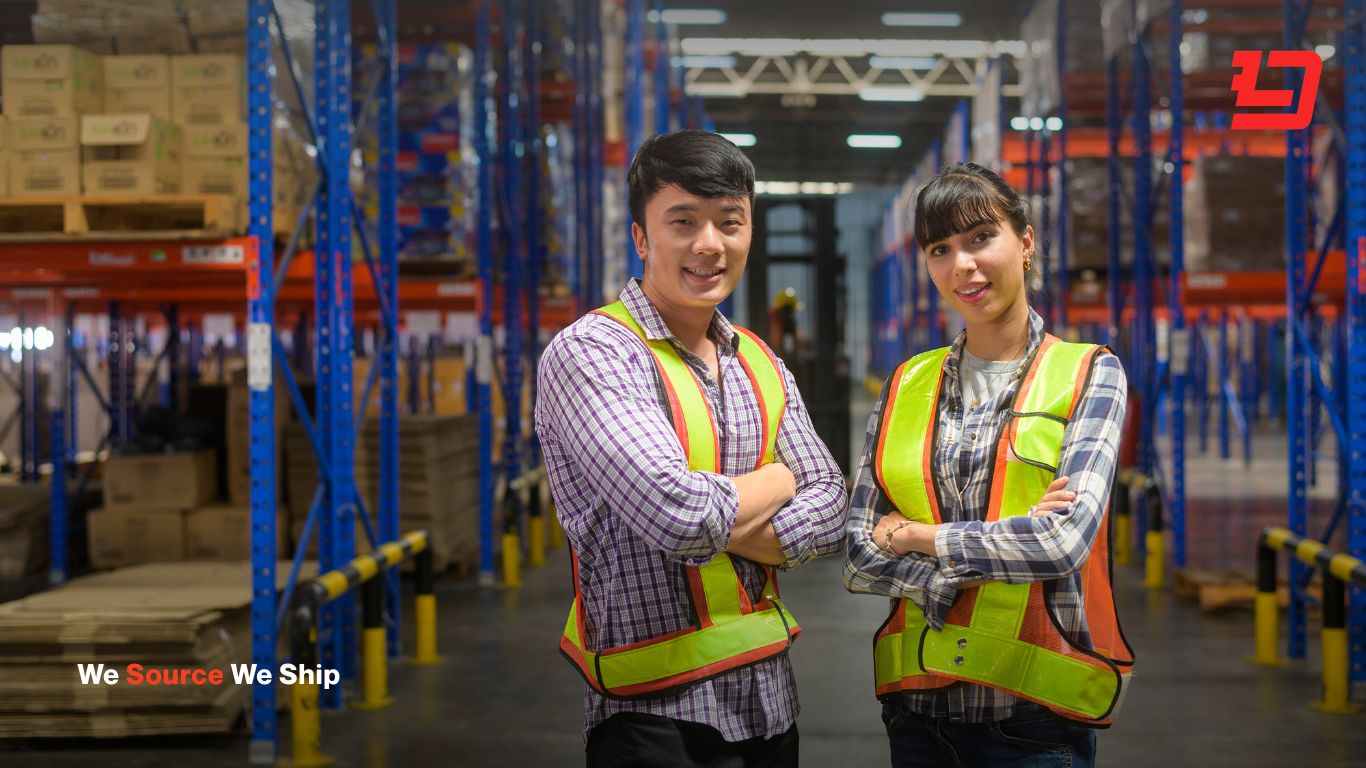Amazon FBA prep is the process of getting your products ready before sending them to Amazon’s fulfillment centers. It includes inspection, labeling, packaging, and bundling based on Amazon’s strict standards.
Every product you send must meet these requirements before Amazon will store or ship it. If it doesn’t, your inventory can be rejected, delayed, or charged extra “unplanned prep” fees.
On July 28, 2025, Amazon officially announced that it will end all in-house prep and labeling services for FBA shipments in the United States starting January 1, 2026. The policy covers all inventory sent through FBA, Amazon Warehousing & Distribution, Amazon Global Logistics, the SEND program, and the Supply Chain Portal.
Shipments created before January 1, 2026, will still qualify for Amazon’s internal prep services, even if they arrive later. However, any shipment created after the cutoff must be fully labeled, packaged, and compliant before reaching an FBA facility. Products that are not prepped correctly risk rejection or loss of reimbursement for damage.
For sellers, this means Amazon will no longer fix packaging or labeling issues. All prep responsibilities now fall on the seller or their chosen logistics partner.
Done properly, FBA prep saves time, protects your margins, and keeps your account in good standing. Done poorly, it can stop your inventory from ever reaching Amazon’s shelves.
How Amazon FBA Prep Works
Here’s how prep fits into the process:
-
Products arrive from your supplier in bulk cartons or pallets.
-
A prep team inspects each unit to ensure quality and correct quantities.
-
Labels are applied, including FNSKU barcodes, suffocation warnings, or “sold as set” stickers.
-
Products are packaged or re-packed in polybags, bubble wrap, or cartons that meet Amazon’s packaging rules.
-
Bundled or kitted sets are grouped and labeled clearly as one sellable unit.
-
Everything is packed into Amazon-approved cartons and labeled for shipment.
When done correctly, your cartons arrive at Amazon’s fulfillment centers ready for sale without delays or additional fees.
Why Amazon Is So Strict About Prep
Amazon’s fulfillment network runs on consistency and speed. To keep operations smooth, every product must meet the same standards.
-
Barcodes and labels identify your inventory as yours and prevent mix-ups.
-
Warning labels protect customers and reduce legal risk.
-
Standard packaging and weight limits make warehouse handling faster and safer.
Missing one of these steps slows Amazon’s workflow and can lead to chargebacks, rejections, or lost time.
Main Steps in FBA Prep
Most FBA prep includes the following tasks:
-
Inspection: Checking product quality, quantity, and condition.
-
Labeling: Adding FNSKU barcodes, warning labels, and country-of-origin tags.
-
Protective packaging: Using bubble wrap, polybags, or boxes that meet Amazon’s standards.
-
Kitting and bundling: Creating multipacks and marking them “sold as set.”
-
Carton preparation: Packing and labeling boxes for delivery to Amazon.
Each step ensures your products arrive safely, pass Amazon’s checks, and reach customers quickly.
DIY vs Professional FBA Prep
Sellers often start by doing prep themselves. It seems simple, but it quickly becomes one of the most time-consuming parts of selling on Amazon.
DIY FBA Prep
Doing prep yourself gives you control and may save money when your order volume is small. But once you start managing hundreds of units per shipment, labeling, wrapping, and boxing can take hours. Even one small mistake can lead to rejected shipments or delays.
Professional FBA Prep Services
Professional prep centers handle the process for you. They have trained staff, approved materials, and knowledge of Amazon’s rules. Most charge between $1 and $2 per unit, which covers inspection, labeling, packaging, and compliance checks. The benefit is accuracy, speed, and fewer problems with Amazon’s warehouse system.
| Factor | DIY Prep | Professional Prep |
|---|---|---|
| Cost | Lower at small volumes | $1–2 per unit |
| Time | High, you do the work | Low, handled by experts |
| Scalability | Difficult beyond a few hundred units | Built for large shipments |
| Compliance Risk | High | Low |
| Storage | Requires space | Storage included |
| Focus | Time lost to prep work | Time free for marketing and growth |
DIY prep works when you’re small. For established or scaling brands, outsourcing saves time and avoids mistakes that slow growth.
What to Look for in a Quality FBA Prep Service
Choosing the right prep partner can make or break your Amazon operation. A good service keeps your inventory moving smoothly. A bad one causes delays, rejections, and unnecessary costs. Here’s what to look for and why each factor matters.
1. Experience with Amazon Rules
Amazon updates its packaging and labeling policies often, and one small rule change can impact every shipment. Your prep provider should understand these updates and know how to apply them correctly. Ask if they’ve worked with products like yours, especially if you sell fragile, liquid, or oversized items that need extra care.
2. Transparent Pricing
Many prep centers advertise low base prices but add hidden charges for labeling, bubble wrap, or storage. Look for a provider that lists all costs upfront. They should clearly explain what’s included per unit and what counts as an add-on. Clear pricing makes it easier to plan margins and prevent surprise fees.
3. Fast and Reliable Turnaround
In ecommerce, speed matters. If your prep center takes a week to process inventory, your listings can go out of stock. Choose a provider that guarantees quick turnaround times, ideally within 24 to 72 hours after receiving goods. Consistent processing helps you maintain the Buy Box and avoid lost sales.
4. Strategic Location
Location affects both cost and delivery speed. A prep center near Amazon fulfillment centers can cut domestic shipping costs, while one close to your factory or port in China saves time before export. The best setup often includes both options — prep near your supplier for export shipments and another center in the United States for restocks or returns.
5. Strong Quality Control
Good prep centers do more than stick labels on boxes. They inspect products for damage, misprints, or incorrect SKUs before packing. Early detection prevents defective items from reaching Amazon, protecting your reputation and reducing returns. Ask how they track inspections and whether they provide reports or photos.
6. Flexible Storage Options
Inventory management is a balancing act. Sending too much stock to Amazon leads to high storage fees, while sending too little causes stockouts. A quality prep service will offer short-term or long-term storage so you can control how much inventory moves at a time. This flexibility helps maintain a healthy cash flow.
7. Clear Communication and Tracking
You should always know where your inventory is and when it’s being processed. Look for providers who use online dashboards, shared spreadsheets, or automated notifications. Strong communication means fewer surprises and faster problem resolution if something goes wrong.
8. Scalability for Growth
Your prep center should grow with you. Ask how they handle peak seasons like Q4 or Prime Day. A scalable partner can manage larger volumes and new SKUs without delays or reduced quality.
When to Know You Need to Outsource FBA Prep
Many sellers start by handling prep themselves, but there comes a point when the workload outweighs the savings. You’ll know it’s time to outsource if:
1. Prep is taking too much time
If you’re spending more than a few hours per week labeling, wrapping, or boxing, that’s time pulled away from growing your business. When operations feel stuck in “prep mode,” outsourcing helps free up your schedule.
2. You’re making frequent mistakes
Labels placed wrong, mixed SKUs, or damaged packaging can lead to rejected shipments. If these errors keep happening, it’s a clear sign that professional help is needed.
3. You’re running out of space
Once your living room or small warehouse starts filling with cartons, it’s time to move prep to a professional facility. Prep centers have proper storage, shelving, and packing equipment to handle volume efficiently.
4. You’re scaling faster than you can manage
If you’re preparing hundreds or thousands of units per month, doing it yourself becomes unsustainable. A prep center is designed to handle bulk processing quickly while maintaining accuracy.
5. You want to expand globally
When you start shipping internationally or using multiple fulfillment centers, managing labeling and compliance in-house gets complicated. Outsourcing ensures your shipments meet all Amazon requirements in each region.
Outsourcing doesn’t mean giving up control. It means handing the repetitive work to professionals so you can focus on strategy, product growth, and customer experience.
Questions to Ask Potential Prep Services
Before you choose a prep partner, ask a few direct questions:
- How much experience do you have with products like mine?
- What is your average turnaround time, and how do you handle peak seasons?
- How do you deal with damaged goods or labeling errors?
- Can you manage special packaging or prep requirements, and what is the cost?
-
How will you keep me updated on my shipments and stock levels?
Their answers will tell you whether they truly understand Amazon’s process and can scale with your business.
Lansil Global’s FBA Prep in China and US
Lansil Global provides Amazon FBA prep services in both China and the United States, giving ecommerce sellers the flexibility to prepare inventory where it makes the most sense.
In China: Our Shenzhen warehouse supports sellers directly after manufacturing. We handle inspections, labeling, and packaging before products leave the country. This prevents costly errors and reduces the risk of non-compliance once shipments arrive at Amazon.
In the United States: Our fulfillment warehouses in Nevada and Pennsylvania manage FBA prep, inspection, labeling, bundling, and storage for both imported and domestic products. This setup helps brands restock faster and manage returns or re-labeling for resale.
By combining both options, Lansil Global allows sellers to prepare inventory near the source in China or near the market in the United States. This dual-location model improves speed, lowers shipping costs, and ensures consistent quality control.
FBA prep is not just another operational step. It is the foundation of your Amazon business. Doing it right ensures your inventory moves smoothly, avoids penalties, and reaches customers on time.
DIY prep can work when you’re small, but as you grow, outsourcing to a professional partner saves time and protects your brand.
If you want a trusted partner with FBA prep services in both China and the United States, Lansil Global can help. Our team handles inspection, labeling, packaging, and global fulfillment so your products arrive at Amazon ready to sell.
Contact us today to build a faster, more compliant prep system for your brand.


